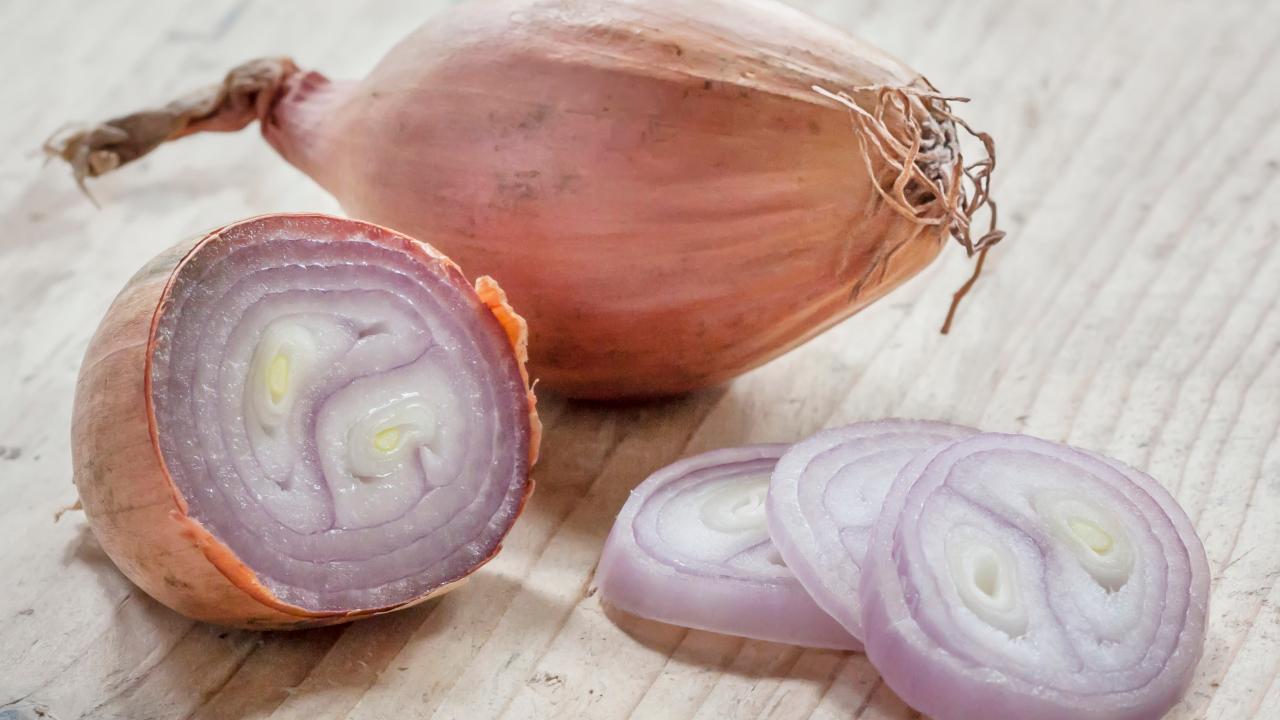sztroy.info – Shallots, a type of onion with a mild, sweet flavor, are a popular ingredient in many cuisines around the world. They are often used to add depth and complexity to dishes, from soups and stews to stir-fries and sauces.
A Nutritional Powerhouse
While shallots may be small, they are packed with essential vitamins, minerals, and antioxidants. Some of its key nutrients include:
- Vitamin C: A potent antioxidant that boosts immunity.
- Vitamin B6: Essential for brain function and metabolism.
- Potassium: Helps regulate blood pressure.
- Manganese: Involved in bone health and metabolism.
- Antioxidants: Help protect cells from damage caused by free radicals.
Health Benefits of Shallots
- Boosts Immunity: The vitamin C in shallots helps strengthen the immune system, making it an excellent choice for preventing colds and flu.
- Promotes Heart Health: The potassium and antioxidants in shallots can help lower blood pressure and reduce the risk of heart disease.
- Anti-inflammatory Properties: The compounds in shallots have anti-inflammatory properties, which can help reduce inflammation throughout the body.
- Cancer Prevention: Some studies suggest that the phytochemicals in shallots may help protect against certain types of cancer.
- Improved Digestion: The fiber in shallots can help promote healthy digestion and relieve constipation.
- Antimicrobial Properties: Shallots have antimicrobial properties, which can help fight infections.
Culinary Versatility
Shallots are incredibly versatile and can be used in a variety of dishes. Here are some popular ways to incorporate shallots into your meals:
- Sautéed Shallots: Sautéed shallots are a delicious and simple side dish.
- Caramelized Shallots: Caramelized shallots are a sweet and savory topping for meats, vegetables, and sandwiches.
- Shallot Vinaigrette: A tangy and flavorful dressing made with shallots, vinegar, and oil.
- Shallot and Herb Butter: A delicious spread for bread or a topping for grilled meats and vegetables.
- Shallot and Garlic Confit: A flavorful condiment made with shallots, garlic, and olive oil.
Tips for Selecting and Storing Shallots
- Selection: Choose shallots that are firm and have dry, papery skins. Avoid shallots with soft spots or signs of mold.
- Storage: Store shallots in a cool, dry place away from direct sunlight. You can also store them in the refrigerator to prolong their shelf life.
